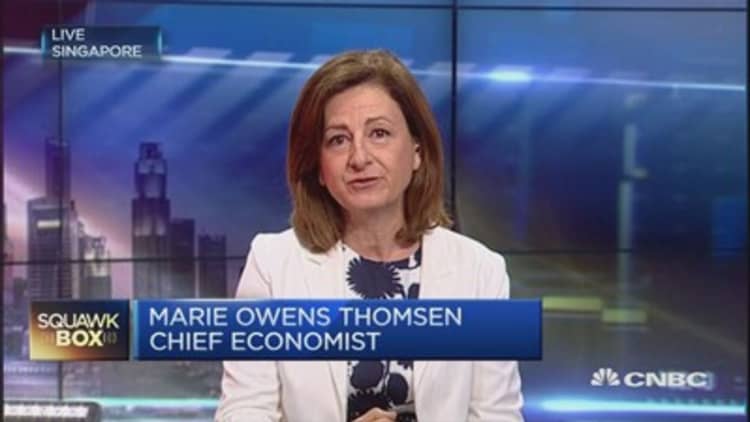Faced with U.S. inflation running too low for too long, the Federal Reserve should aim to boost inflation above the central bank's 2-percent target by keeping interest rates near zero until early next year, a top Fed policymaker said on Monday.
"Policy should be sufficiently accommodative so that ... the odds should favor modestly overshooting our 2 percent target sometime in the medium term," Chicago Fed President Charles Evans said in remarks prepared for delivery in Stockholm.
"To establish adequate upward momentum in inflation, I think it likely also would be appropriate to increase the fed funds rate target only gradually for a while after the first rate hike."
A voting member this year on the U.S. central bank's policy-setting panel, Evans marshalled what have become his usual arguments for holding rates low until early 2016, longer than nearly all his fellow U.S. central bankers think would be appropriate.
Repeating much of an early May speech word for word, he said unemployment at 5.4 percent is still about a half a percentage point higher than it ought to be.
Read MoreTraders watch formore signs of economic stall
And inflation, which by the Fed's preferred gauge of underlying trends rose just 1.3 percent over the last year, probably will not return to the Fed's target for another three years, he said.
His call for the Fed to purposely weigh the odds in favor of overshooting its own inflation target, however, is new.

Evans warned that by not aggressively moving to boost inflation, the public may begin to assume the Fed is content to miss its own goals, undercutting the effectiveness of U.S. monetary policy.
Most Fed officials, including Fed Chair Janet Yellen, expect economic conditions will be ripe for higher interest rates sometime this year. Some economists have recently warned that if the economy continues to underperform expectations, the Fed may need to delay a rate hike beyond September, when most currently expect the Fed to act.
Evans, however, downplayed the economy's weak first quarter, saying it was probably transitory.
Instead he argued that the so-called equilibrium real rate - the interest rate at which the economy can function at full health - is still low enough to justify near-zero rates.
Only when the equilibrium real rate is "well north" of actual short-term interest rates and is rising "smartly" will there be enough upward pressure on inflation to justify raising the Fed's target rate, he said.

